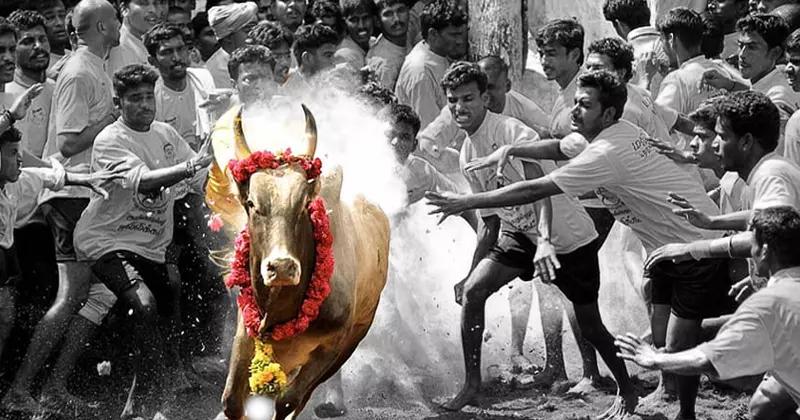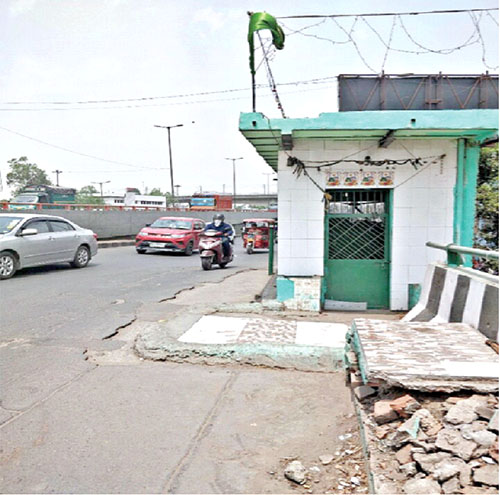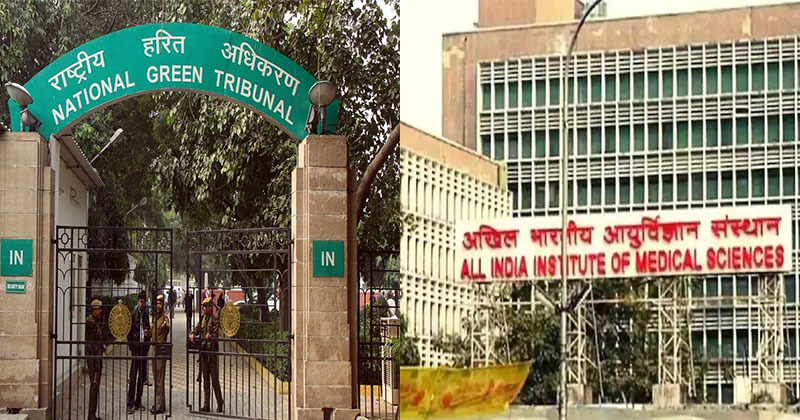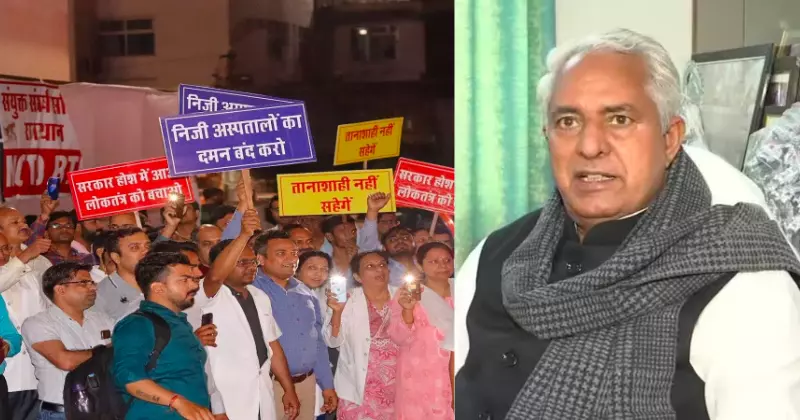On May 18, the Constitution Bench of the Supreme Court upheld Tamil Nadu, Karnataka and Maharashtra’s state amendments to the Prevention of Cruelty to Animals Act (PCA Act), 1960, introduced to regulate the conduct of Jallikattu, Kambala and Bullock Cart Race.
The five-judge bench overruled the two-judge bench’s decision in the Animal Welfare Board of India v A. Nagaraja (2014) case, wherein the Division Bench of the Supreme Court held that Jallikattu was not a part of Tamil Nadu’s cultural heritage, noting that the Division Bench arrived at the conclusion based on insufficient evidence.
The Constitution Bench further acknowledged that the bovine sport was going on for “at least last few centuries,” and said, “When legislature has declared that jallikettu is part of cultural heritage of TN state, judiciary cannot take a different view. Legislature is best suited to decide that.” The court further said, “We will not disrupt the view of the legislature that it is part of the cultural heritage of the state,” noting that that preamble of Tamil Nadu’s amendment refers to Jallikattu as a part of state’s cultural heritage.”
The Constitution Bench was hearing a petition challenging the three state amendments regulating the conduct of bovine sports which are a part of these state’s cultural heritage. The petitioners contended that the impugned amendments contravene the Division Bench’s verdict in the A. Nagaraja case as they do not cure the ‘defects’ brought out in the judgement. The petitioners further argued that the amendments were ‘colourable legislations’ introduced to override the judicial verdict.
However, the Constitution Bench rejected the petitioner’s contentions and observed that there is a substantial change in the manner Jallikattu and other bovine sports are performed after the state amendments were enacted. The court further observed that the ruling in the A. Nagaraja case was based on factual circumstances, it cannot be said that the ruling is applicable to the present situation, as the nature and manner in which the bovine sports were performed have been altered.
Furthermore, the Constitution Bench noted that Tamil Nadu’s state amendment relates to, in pith and substance, Entry 17 of List III (Concurrent List) of the Seventh Schedule to the Constitution of India, and is not a colourable legislation. The court also noted that the amendment minimises cruelty to the participating animals due to the implementation of the amendment act, along with its rules and notifications, and thus the act does not contravene the PCA Act.
Animal Welfare Board of India v A. Nagaraja (2014)
In 2014, a Division Bench of the Supreme Court banned the practice of Jallikattu, Bullock Cart Race and other bovine sports across India, on grounds that these sports contravene certain provisions of the PCA Act. The Division Bench also upheld the UPA government’s notification dated July 11, 2011, which excluded ‘bulls’ from the list of performing animals.
In 2011, Congress leader and the then-Minister of State, Ministry of Environment and Forests (MoEF), Jairam Ramesh released the notification, excluding ‘bulls’ from the purview of ‘performing animals’ and therefore, not allowed to be trained, exhibited or used in sports.
The Division Bench relied on the Animal Welfare Board of India’s (AWBI) affidavit and the report while banning Jallikattu, Bullock Cart Race and other bovine sports across the country. The court held, “Bulls cannot be used as performing animals, either for the Jallikattu events or Bullock-cart Races in the State of Tamil Nadu, Maharashtra or elsewhere in the country.”
It is pertinent to note that the AWBI is a statutory advisory body, then under the purview of MoEF, Government of India, and that the UPA government was in power when the A. Nagaraja case was argued before the Division Bench.
The AWBI’s report submitted before the Division Bench read, “The findings of this investigation clearly show that bulls who are used in jallikattu are subjected to extreme cruelty and unmitigated suffering.” The MoEF’s advisory body, AWBI, also submitted an affidavit stating, “I affirm on behalf of the Animal Welfare Board of India that Jallikattu is indeed an extremely cruel and barbaric sport, in which the Bulls that are forced to participate are brutalized and subjected to unnecessary pain and suffering,” opposing the Tamil Nadu Regulation of Jallikattu Act (TNRJ Act), 2009, violates the PCA Act.
Furthermore, the Division Bench made certain observations on Jallikattu’s cultural significance and said, “Even the ancient culture and tradition do not support the conduct of Jallikattu or Bullock cart race, in the form in which they are being conducted at present. Welfare and the well-being of the bull is Tamil culture and tradition, they do not approve of infliction of any pain or suffering on the bulls,” placing reliance on MoEF’s evidence which deprecated the nature and manner in which Jallikattu events are held in the state.
The Battle for Tamil Culture: A Timeline
In 2006, the single judge of the Madras High Court, Justice R Banumathi, banned Jallikattu, Rekla Race and other sports causing ‘cruelty’ to animals in view of the PCA Act. Ever since the bovine sport was first banned, it has faced multiple back and forth with the law.
In 2009, the Tamil Nadu government decided to preserve Jallikattu, a part of Tamil cultural heritage, and therefore, introduced the TNRJ Act to regulate the conduct of the bovine sport. However, the legislation was challenged shortly after.
In 2011, Jairam Ramesh released a notification listing six animals – bears, monkeys, tigers, panthers, lions and bulls – that shall not be exhibited or trained as ‘performing animals’ with immediate effect, thus, banning the cultural sport of Jallikattu. However, the bovine sport continued to be held in Tamil Nadu due to TNRJ Act.
In 2014, the MoEF’s AWBI and People for the Ethical Treatment of Animals (PETA), an animal rights NGO, moved the Supreme Court seeking a ban on Jallikattu, Bullock Cart Race and other bovine sports, armed with the UPA government’s 2011 notification excluding ‘bulls’ from the list of performing animals.
Thereafter, the Division Bench ruled in favour of the petitioners in A. Nagaraja case, imposing a pan-India ban on Jallikattu, Bullock Cart Race and other bovine sports, placing reliance on the AWBI’s evidence. The court struck down the TNRJ Act, which allowed and regulated the conduct of Jallikattu in Tamil Nadu, stating that it was violative of the PCA Act and the Constitution of India.
“I welcome the Supreme Court judgement. It will put an end to a barbaric practice”
– Congress MP Jairam Ramesh, on 2014 ban on Jallikattu
The Tamil Nadu government sought a review of the Division Bench’s verdict contending that the sport is not cruel as a whole and the instances of cruelty are isolated incidents. However, the court rejected the state government’s plea.
In 2015, former Prime Minister Manmohan Singh wrote a letter to Humane Society International/India (HSII), an organisation similar to PETA, deprecating Jallikattu. He wrote, “we have to work to discourage bullfights which provide a cruel form of entertainment. I wish you all success in achieving your objective,” in his letter to HSII Managing Director NG Jayasimha.
1/2 BJP trying to score political points in Tamil Nadu by reversing progress on stopping cruel jallikattu, deviously circumventing SC ruling
— Shashi Tharoor (@ShashiTharoor) December 31, 2015
2/2 If we r a law-abiding country we cannot allow jungle raj to prevail. Obey the Supreme Court's ruling on jallikattu. No TN votes4cruelty
— Shashi Tharoor (@ShashiTharoor) December 31, 2015
In 2016, the NDA government’s Ministry of Environment, Forest and Climate Change (MoEF&CC) released a notification, which amended the UPA government’s 2011 notification. The MoEF&CC’s notification inserted a proviso permitting the conduct of Jallikattu and Bullock Cart Race “in the manner by the customs of any community or practiced traditionally under the customs or as a part of culture.”
Modi govt has gone against SC order & against the advise of Attorney General. It is complete contempt of SC:Jairam Ramesh,Cong on jallikattu
— ANI (@ANI) January 9, 2016
The 2016 notification also listed certain conditions regulating the track’s conditions, ensuring the physical health of participating bulls and prohibiting the use of performance-enhancing drugs. However, the Supreme Court stayed the NDA government’s notification after AWBI, PETA and other animal rights bodies moved the court against it.
Disgraceful BJP political pandering to retrograde elements inTN&Maharashtra results in torture of bulls. Urge Animal Welfare Board to appeal
— Shashi Tharoor (@ShashiTharoor) January 10, 2016
In 2017, the state of Tamil Nadu witnessed mass protests with protestors raising “Save Jallikattu” placards and banners. Thereafter, Tamil Nadu introduced a state amendment to the PCA Act in order to preserve the Tamil cultural heritage. Furthermore, the then-President of India Pranab Mukherjee gave his assent to the state amendment, giving it effect.
Maharashtra and Karnataka also introduced similar amendments to preserve their culture. However, PETA and other animal rights bodies challenged the three state amendments before the Supreme Court, contending that it contravened with the Division Bench’s verdict in the A. Nagaraja case.
It is pertinent to note that Congress spokesperson and Senior Advocate Abhishek Manu Singhvi appeared on behalf of the petitioners challenging the state amendments and seeking a ban on Jallikattu. However, when asked to choose between the case and his Rajya Sabha membership, the Congress leader decided to withdraw from the case in 2017.
When Kamal Hasan supports jallikattu I wonder whether he has read detailed SC judgement elaborating barbaric cruelty done in the sport
— Abhishek Singhvi (@DrAMSinghvi) January 10, 2017
In 2018, the two-judge bench of the Supreme Court referred the case to a five-judge bench as it involved substantial questions pertaining to the interpretation of the Constitution of India.
In 2019, Jayanthi Natarajan, former Union Minister in the UPA government, admitted that Jairam Ramesh and Congress were responsible for banning the Tamil cultural sport in an interview with a Tamil news channel.
In 2021, Congress reversed its anti-Jallikattu stance when Congress leader and Gandhi scion Rahul Gandhi visited Madurai as a special guest at a Jallikattu event, a few months before the sixteenth Tamil Nadu assembly elections.
He said, “I will always stand with the Tamil people to protect their culture and Tamil language,” at the event, whitewashing the Congress’s persistent efforts seeking a ban on Jallikattu. “I have come here specifically to give a message to those who think that they can run a roughshod over the Tamil people and push aside their culture. The Tamil people, their culture and heritage are very important for the future of India,” he added.
It is pertinent to note that in 2016, Congress released its manifesto promising a ban on Jallikattu for the 2016 Tamil Nadu assembly elections. However, the UPA lost the election. Furthermore, in January 2021, the Tamil Nadu Congress Committee tweeted a forged version of its 2016 manifesto before the 2021 assembly elections claiming that it had promised to “revoke the ban on Jallikattu” during the 2016 elections.
Fake News by @youturn_in !
Congress indeed promised #Jallikattu Ban in their 2016 Manifesto.
After the protests in 2017 they changed the manifesto file in the website to add a last point in Page No.72.
Here’s @IndiaToday’s video news on that . pic.twitter.com/L0MhSlK1I2 https://t.co/0lvMO0M6QT
— Dr.SG Suryah (@SuryahSG) May 18, 2023
In 2022, the Constitution Bench reserved its verdict in the case concerning the challenge to Tamil Nadu, Maharashtra and Karnataka’s state amendments allowing the conduct of the Jallikattu, Kambala and Bullock Cart Race. Thereafter, the court overruled its decision in the A. Nagaraja case and upheld the three state amendments, preserving the cultural heritage of the states.
Shreeyash Mittal is a lawyer based in Delhi, working as a Senior Associate (Corporate Law) at K&Co. Advocates & Legal Consultants in Noida. He graduated from Jindal Global Law School with honors, receiving awards for his outstanding contributions and leadership. Shreeyash is passionate about using new technologies to help clear the backlog of legal cases in India.























Comments